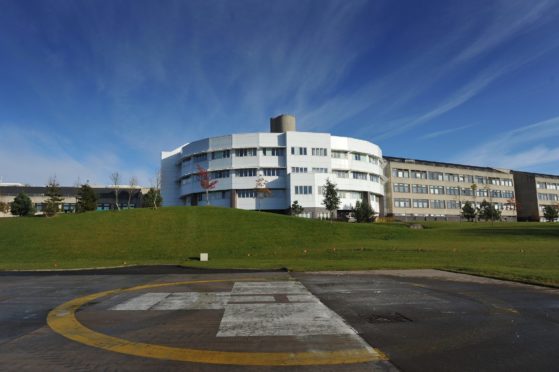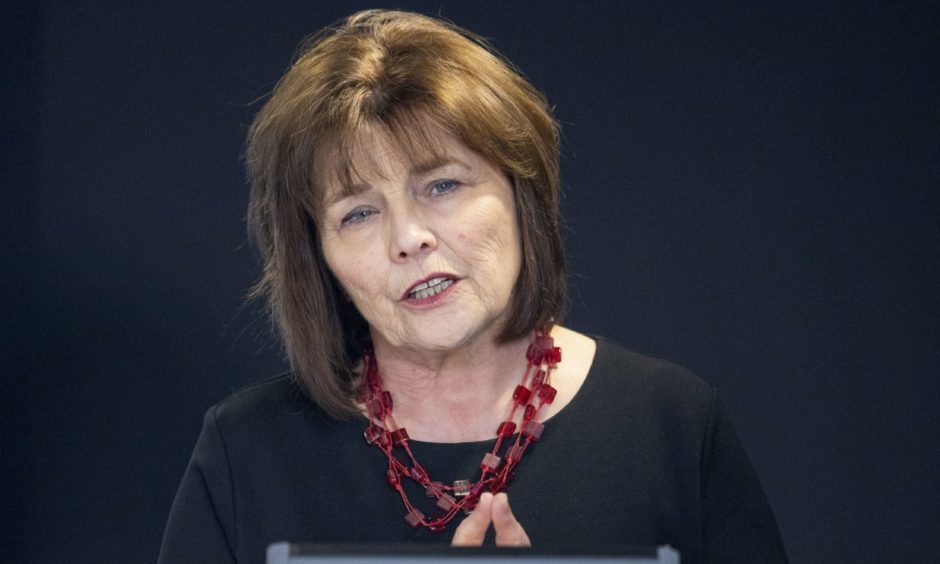Cancer treatments in Scotland resumed quicker than elsewhere in the UK after the first lockdown, according to new research.
A study by Dundee University researchers showed chemotherapy treatment was almost fully restored in Scotland, just a month after a service re-design sparked by coronavirus.
Anti-cancer treatments in Scotland dropped by almost one third last March due to fears it would make vulnerable people more susceptible to catching coronavirus but clinicians found ways to adapt to protect patients.
Research shows these changes, including developing protected areas for chemotherapy treatment and switching patients to alternative chemotherapies which required less contact and had fewer side-effects.
This study provides reassurance that the impact and disadvantage for cancer patients in Scotland was limited.
Russell Petty, Professor of medical oncology at Dundee University’s School of Medicine, said: “Our analysis shows that NHS Scotland rapidly recovered and maintained cancer chemotherapy for patients during the first wave.
“The initial decrease in activity lasted only a few weeks and, even at its nadir [lowest point] far more cancer services were operating than in many other countries.
“The prospect of cancer treatments being postponed or cancelled completely has been a real fear for patients and their loved ones over the past year.
“There has been increasing anxiety about the indirect impact on cancer treatment so this study provides reassurance that the impact and disadvantage for cancer patients in Scotland was limited.”
At it’s lowest point, cancer treatments dropped by 29% in Scotland, compared to 45% in England and 66% in Northern Ireland, according to the research published in the British Journal of Cancer.
It sparked fears that delays in treatment allowed cancer to progress and become terminal.
Improved treatments
In Scotland, the rapid re-design also expedited the approval of new cancer medicines, which researchers say has provided better treatments, in a rare positive to the pandemic.
Professor Petty added: “New treatments that clinicians across the country had been gradually introducing to improve cancer chemotherapy were greatly accelerated as a result of the pandemic.
“Processes that would normally take months or even years took just weeks while the UK Coronavirus Cancer database allowed us to collect data on the safety of treatments for patients.
“These activities have placed us in the best position to sustain treatment during the second wave and, in the medium-term, chemotherapy services for patients will have actually improved.”
Breast cancer chemotherapy was the least affected and dropped to just 19.7% of its pre-pandemic levels and reverted to normal the quickest.
But treatment for colorectal cancer fell by 43.4%, due to Covid-19 infection concerns over using endoscopies for diagnosis
“Covid-19 is a new disease and when it emerged it wasn’t known what the effect would be on cancer patients,” added Professor Petty.
“Their immune system is already weakened, particularly in those receiving chemotherapy, so it was right that caution was exercised until we could be sure that proceeding with treatment wouldn’t endanger them more than the cancer was.”
The effects of Covid-19 will be felt for years to come.
But the professor acknowledged there is a lot of work still to be done to assess the long-term effects of Covid-19 on cancer treatment.
“While the short-term situation is more positive than many feared, we will not know the full impact of Covid-19 on cancer for several years,” he said.
“The number of people diagnosed with cancer is down significantly on previous years. Sadly this means that cancers will be diagnosed later than they normally would and this will invariably impact on survival rates and other outcomes.
“The effects of Covid-19 will be felt for years to come.”
Cancer recovery plan
The Scottish Government has published a priority plan for cancer treatments during the latest lockdown, but said changes should be discussed with patients on a “case by case basis”.
NHS Tayside confirmed all chemotherapy treatment is going ahead as normal.
Scotland’s health secretary Jeane Freeman welcomed the findings and encouraged people not to hesitate in seeking medical help if they have health concerns.
She said: “We are acutely aware that this continues to be an incredibly difficult time for people affected by cancer.
“Diagnosing and treating cancer remain a priority, which we have supported in a new cancer recovery plan with a planned investment of up to £114.5 million over the next two years.
“The NHS remains open for non-coronavirus health concerns.
“If you are experiencing any new signs or symptoms, GP practices want to hear from you.
“Also, any cancer patient worried about symptoms should call their existing cancer treatment helpline or the national cancer treatment helpline.”












